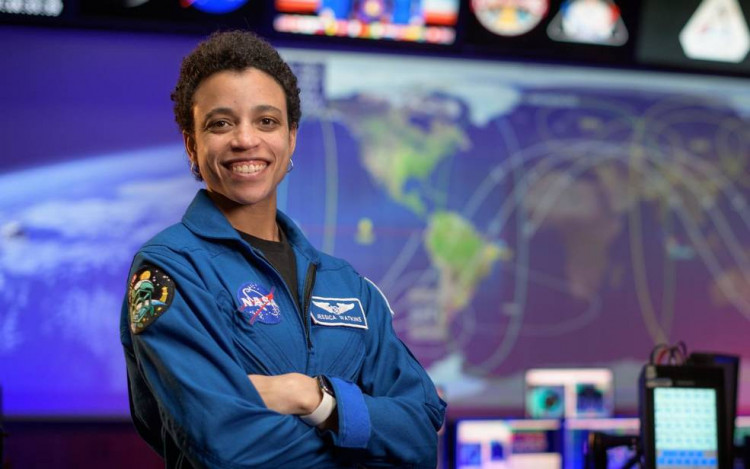Jessica Watkins, a NASA astronaut, is set to become the first Black woman to join the space agency's International Space Station crew for a long-duration mission.
NASA announced on Tuesday that Watkins, a geologist raised in Lafayette, CO, would be a mission specialist on SpaceX's next astronaut journey to the space station, known as Crew-4. She will be joined by two other NASA astronauts and one Italian astronaut for a six-month mission aboard the orbiting lab, which is set to begin in April.
Only seven of the 249 people who have entered the space station since its inception in 2000 have been Black.
Victor Glover, a Navy commander and test pilot who joined NASA's astronaut corps in 2013, was the first Black crew member to serve on a regular long-duration mission at the station, which began last year. Prior to Glover, six African-American astronauts had visited the space station as part of space shuttle missions that lasted for around 12 days.
Guion S. Bluford was the first African-American to go to space in 1983, and Mae Jemison was the first Black woman to go to space in 1992. Ed Dwight, a pilot in the Air Force, was NASA's first Black astronaut candidate in 1961, but he was not chosen.
Sian Proctor, a member of SpaceX's Inspiration-4 amateur astronaut mission that went to orbit but not to the space station, made history in September by being the first Black woman to fly a spacecraft.
In 2018, NASA astronaut Jeanette Epps was supposed to be the first Black woman to live and work on the space station. However, for reasons that NASA has not revealed, she was replaced by another astronaut. She'll be part of the first operational astronaut team to fly Boeing's Starliner capsule to the station for a six-month mission.
However, the capsule's development is years behind schedule. A malfunctioning set of valves discovered on Starliner's propulsion system during an uncrewed test launch this summer further pushed out Epps' mission to late 2022.
Watkins was one of 18 astronauts picked by NASA last year to represent the agency's Artemis mission, a multibillion-dollar endeavor to return humans to the moon's surface in 2025, including the first woman and the first person of color.
During NASA's Apollo program, all of the astronauts deployed to the moon were White men. In recent years, NASA has worked to make its astronaut programs more reflective of the general public in the U.S.
Humans have been living and working onboard the space station in low-Earth orbit for more than 21 years, increasing scientific knowledge, demonstrating new technology, and achieving research breakthroughs that would not be achievable on Earth.






